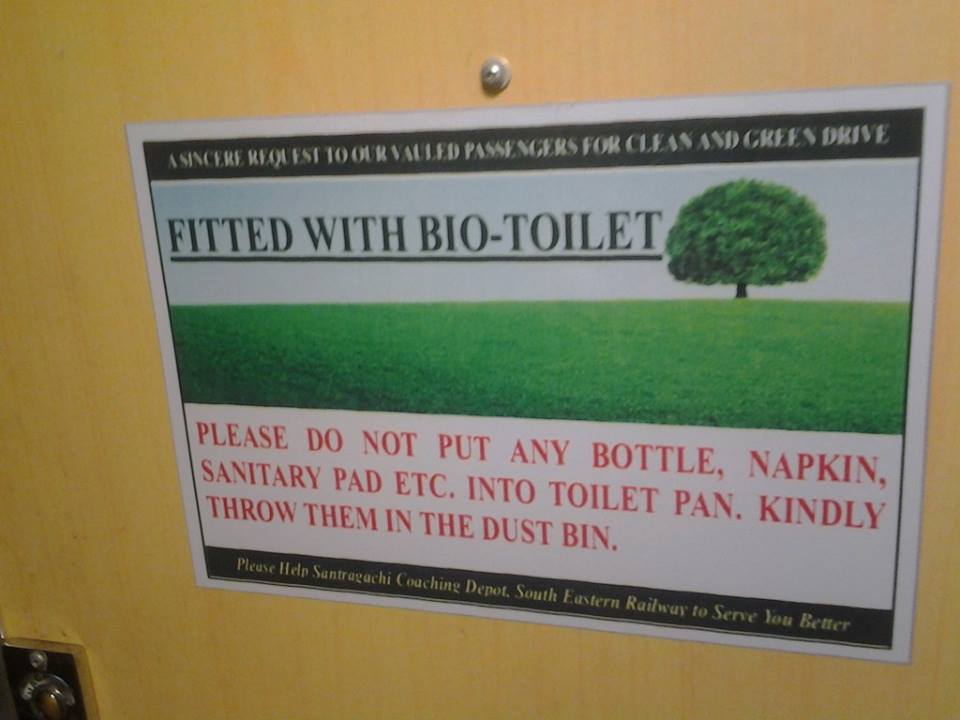Railways Plans to Equip All Trains With Bio-Toilets by December 2018
The decision was announced at an event titled, "Indian Transport Sector: Marching towards sustainable mobility" at Conference of Parties (COP-23), Indian Pavilion at Bonn, Germany on Tuesday.

Despite the extensive foray of airways with more affordable travel options in the country, Indian Railways continues to be hailed as the national transporter for obvious reasons.
Almost every person in the country can corroborate to the fact that they have travelled in the railways at least once in their lifetime. Catering to the travel needs of an economy as large as India’s, which alone comprises 17.74 per cent of the total world population, management and maintenance of rail infrastructure is a mammoth task in itself.
We often complain about the rail coaches and toilets being extremely dirty and in unhygienic conditions. As much as it is the responsibility of the cleaning staff to keep the coaches in a spick and span condition, the ownership should also be shouldered by the commuters while using these facilities—something that is conveniently overlooked by most of us.
Toilets in the coaches are whole together another story. Until the much recent introduction of bio-toilets, there was no provision to treat the human waste except letting the discharge flow onto the rail tracks.
What makes a bio-toilet a significant installation for managing human waste?

Fitted below the coach floor underneath the lavatories, these toilets incorporate microbes with an anaerobic digestion process to digest human excreta. The collected waste is acted upon by a colony of anaerobic bacteria, which converts the waste into water and biogases (mainly Methane and Carbon dioxide).
While the gases escape into the atmosphere, the wastewater is discharged after disinfection onto the track, thus putting an end to the crisis of railway tracks strewn with excreta.
In line with Swachh Bharat and Open Defecation Free (ODF) campaigns, bio-toilets were introduced to curb this unhygienic practice, and at present, more than 900 trains have been augmented with bio-toilets in either all or some coaches of the trains.
You may also like: Bio-Toilets, Solar Panels, and More: Here’s How Indian Railways Is Tackling Climate Change!
The Railway Ministry now aims to expand the facility by 100 per cent and intends to achieve the target by December 2018.
The decision was announced at an event titled, “Indian Transport Sector: Marching towards sustainable mobility” at Conference of Parties (COP-23), Indian Pavilion at Bonn, Germany on Tuesday, reports Zee News.
As mentioned by Ravindra Gupta, Member (Rolling Stock), Ministry of Railways, the ministry is stridently working on various innovative steps towards attaining a low carbon pathway and provide sustainable mobility.
Like this story? Or have something to share?
Write to us: [email protected]
Connect with us on Facebook and Twitter.
NEW: Click here to get positive news on WhatsApp!
If you found our stories insightful, informative, or even just enjoyable, we invite you to consider making a voluntary payment to support the work we do at The Better India. Your contribution helps us continue producing quality content that educates, inspires, and drives positive change.
Choose one of the payment options below for your contribution-
By paying for the stories you value, you directly contribute to sustaining our efforts focused on making a difference in the world. Together, let’s ensure that impactful stories continue to be told and shared, enriching lives and communities alike.
Thank you for your support. Here are some frequently asked questions you might find helpful to know why you are contributing?


This story made me
- 97
- 121
- 89
- 167










